
The US Space Force (USSF) has expressed numerous concerns over the years about Russia and China actively developing a variety of weapons aimed at US space security, including cyber warfare, electronic attack platforms, laser technology capable of blinding or damaging satellite sensors, missiles that can destroy satellites from the ground and orbital engagement systems that could directly target US satellites. US Army Brig. Gen. Jesse Morehouse, responsible for space operations said, the country is prepared to defend its interests in space. "If someone was to threaten the United States of America, or any of our interests, including those of our allies and partners with whom we have treaties of mutual defence support, we are ready."
Russia's space strategy has grown increasingly aggressive, with a cyberattack on the US satellite company Viasat launched just one hour before invading Ukraine in 2022 and threats to target the US and other Western commercial satellites involved in the Ukraine conflict. Russia was also accused of launching an 'inspector' satellite Kosmos-2558 to gather intelligence from US military assets.
On the other hand, China is surging forward in its space ambitions, with state-owned China Aerospace Science and Technology Corporation (CASC) aiming to match SpaceX's capabilities by 2025 and surpass it by 2030. Moreover, China alone possesses 262 intelligence, surveillance and reconnaissance (ISR) satellites, nearly as many as the rest of the world, including the US, combined.
This story is from the June 2023 edition of Future Flight.
Start your 7-day Magzter GOLD free trial to access thousands of curated premium stories, and 9,000+ magazines and newspapers.
Already a subscriber ? Sign In
This story is from the June 2023 edition of Future Flight.
Start your 7-day Magzter GOLD free trial to access thousands of curated premium stories, and 9,000+ magazines and newspapers.
Already a subscriber? Sign In

Sustainability and connectivity: top of the agenda for private jet industry
The executive aviation industry is currently facing a paradox. On the one hand, demand for private flying remains strong, propelled by the rise in the number of high-net-worth individuals around the globe. While on the other hand, the industry is increasingly being questioned by the public, the media, and politicians over its environmental credentials.
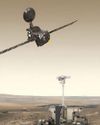
NASA, ESA join forces to land European Rover on Mars
The space agencies signed a new agreement that will see NASA supply heating units for the Rosalind Franklin rover, which could launch as soon as 2028.
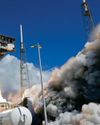
Long-awaited Starliner launch breaks a six-decade drought
An Atlas rocket has launched with astronauts aboard for the first time since Gordon Cooper's final Mercury flight in his Faith 7 capsule on 15 May 1963, powered by an Atlas LV-3B 130-D. The Atlas V rocket that launched on 5 June, manufactured by United Launch Alliance and powered at liftoff by a Russian-built RD-180 first-stage engine, carried Boeing's Starliner crew ferry ship to orbit following multiple launch delays over the past several days.

Non-CO2 emissions measured in commercial aircraft 100% SAF test
Results from the world's first in-flight study of the impact of using 100% sustainable aviation fuel (SAF) on both engines of a commercial aircraft show a reduction in soot particles and formation of contrail ice crystals compared to using conventional Jet A-1 fuel.
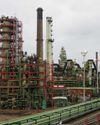
Avfuel, Neste sign SAF supply increase extension
Avfuel and renewable fuel producer Neste have finalised an extension to their agreement regarding the supply of sustainable aviation fuel (SAF) and set a framework for the deal through 2027.
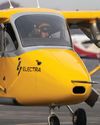
First flight for Electra hybrid 'blown lift' aircraft
Electra's blown-lift design uses eight electric motors to increase wing lift, allowing the eSTOL aircraft to take-off and land in just one-tenth of the space needed by conventional aircraft.
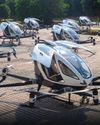
Saudi Arabia's groundbreaking air taxi trial set to transform Hajj travel for pilgrims
In a historic move, Saudi Arabia has successfully conducted its first air taxi trial in Mecca, setting the stage for deployment in the coming years and transforming Hajj transportation for pilgrims.
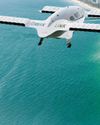
Lilium, French Government in 'advanced' talks for eVTOL jet manufacturing hub
The German manufacturer says it is in ‘advanced discussions’ with the French government to add a high-volume aircraft production facility in France, citing it as an attractive market for its flagship Lilium Jet. The company plans for the aircraft to enter service in 2026.
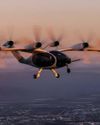
Joby partners with Mukamalah Aviation
Last month Joby Aviation announced it has signed a Memorandum of Understanding (MoU) with Mukamalah, a wholly owned subsidiary of Saudi Aramco, the operator of the world's largest fleet of corporate aircraft, to introduce Joby's aircraft to the Kingdom of Saudi Arabia.
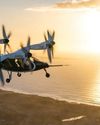
Joby acquires autonomous flight developer Xwing
Joby Aviation is one of many electric vertical take-off and landinng (eVTOL) air tax manufacturers that predicts autonomy will be the driver of ubiquitity for advanced air mobility (AAM) services and the company is placing its money where its mouth is.